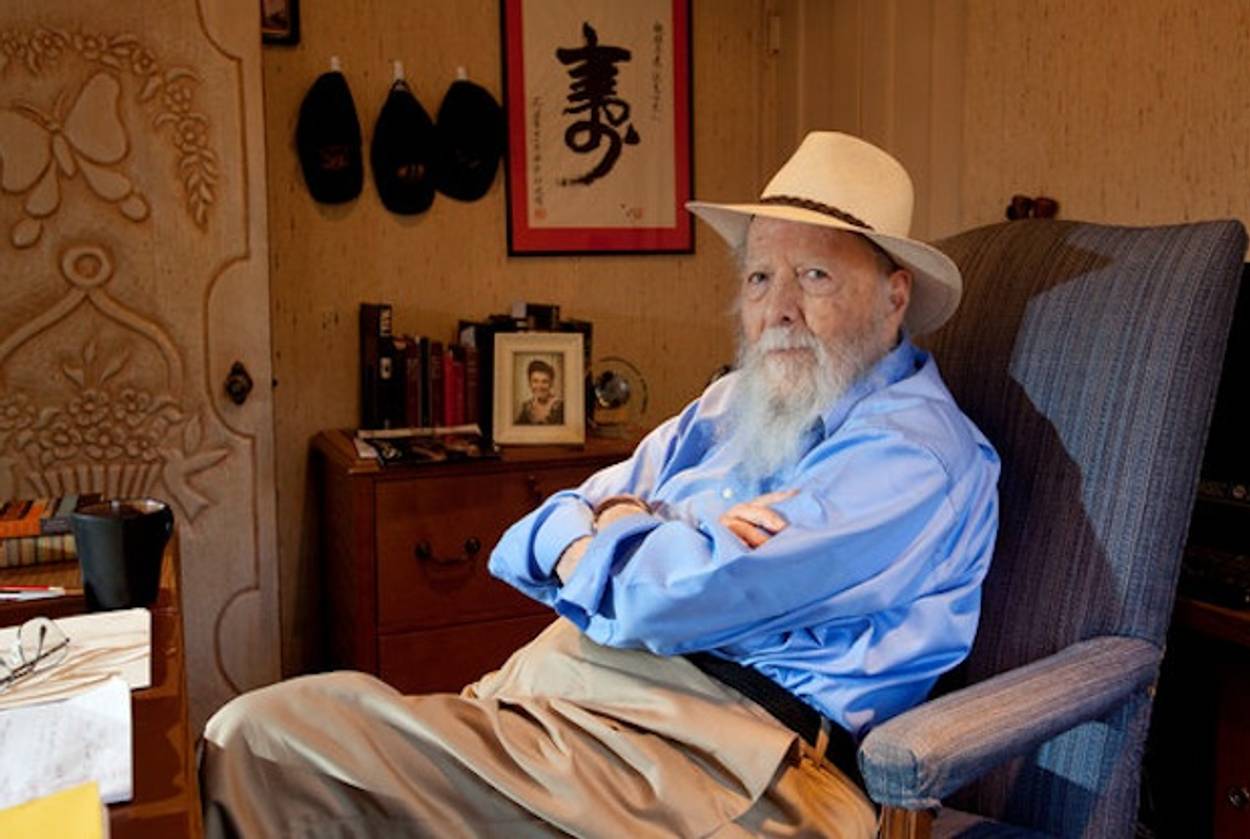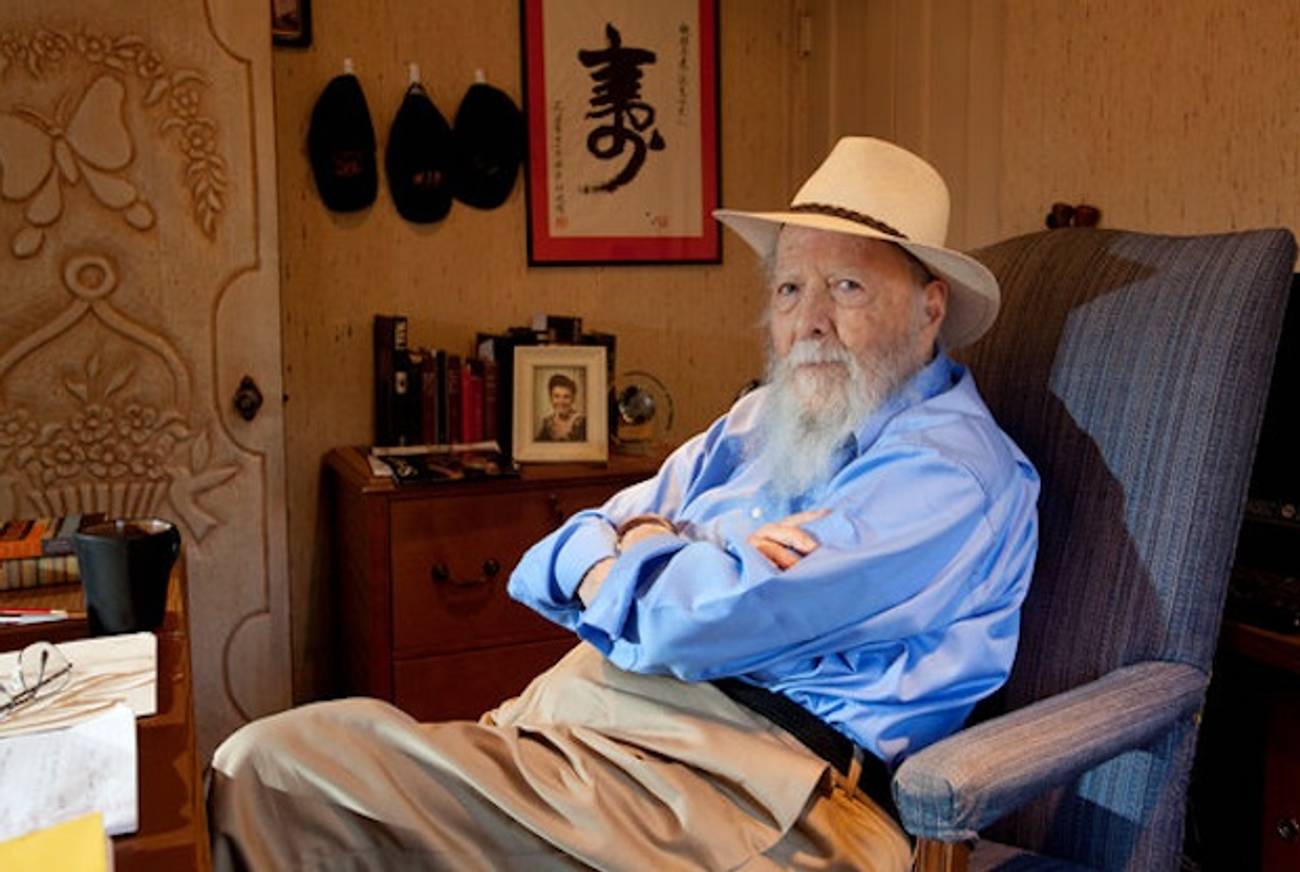Another Look at Herman Wouk’s Latest
The sweet surprises of The Lawgiver‘s archaism




In his review yesterday of The Lawgiver, our critic Adam Kirsch takes advantage of the publication of Herman Wouk’s new novel, along with the recent announcement of Philip Roth’s retirement from fiction-writing, to analyze what it has meant to be an American Jewish writer during the last two, very different, generations. Reading the essay one gets a sense of the major role that Wouk played in the popular literature of the post-war era, even if his work is now considered “beneath or beyond criticism.”
But Wouk’s new book is most interesting as a curio. As Kirsch points out, The Lawgiver takes the form of an epistolary novel, with correspondence made up of letters, faxes, emails, text-messages and Skype conversations. But even these contemporary media can’t modernize Wouk’s essential archaism—and yet, paradoxically, this turns out to be one of the book’s sweet surprises.
Let’s start with the plot: An eccentric, religious billionaire from Australia wants to bankroll a film about Moses, and decrees that “Herman Wouk”—not Aaron Sorkin or Tony Kushner, must, simply MUST, be the screenwriter. The book then chugs along for 230 pages (some the length of a single-sentence text message) with priceless bits of outmoded dialogue, like:
Louie’s off around the world again. Smodar, his secretary, an Israeli, is sweet as honey but hard as nails.
Or:
Yes. Look, Shayna, now that I’ve got Margo, I believe I can get Wouk. If I get Wouk, I get Gluck. That’s bingo, and that’s the caper. Keep your shirtwaist on. Talk to you later. (I’m not sure why the editor didn’t change that to “ttyl.”)
Or:
Say! Depp could play the living bejesus out of Pharaoh.
Or:
The whisper is rife among the guys that I’m a lesbian or something. Their male egos can’t grasp that one man once set the bar so high, peacocks can’t fly over it.
Or:
I’m available,” he said. We looked at each other and both broke into relieved guffaws, at everything we weren’t saying.
Or:
A New York Jewish wedding is a pricey whoop-de-do, especially for a father of the bride who’s a Hebrew school principal.
The 97-year-old Wouk published his first book, Aurora Dawn, in the year of my birth, and, a few weeks ago, I applied for Medicare. But perhaps that’s why I liked it: The language may sound like it’s from another era, but the essential struggle at its heart—between, as Kirsch put it, “the strange shapes that Jewishness can assume when it tries to honor both parts of its hybrid identity”—is timeless.
Related: Herman Wouk’s Last Shot [Tablet Magazine]
Morton Landowne is the executive director of Nextbook Inc.